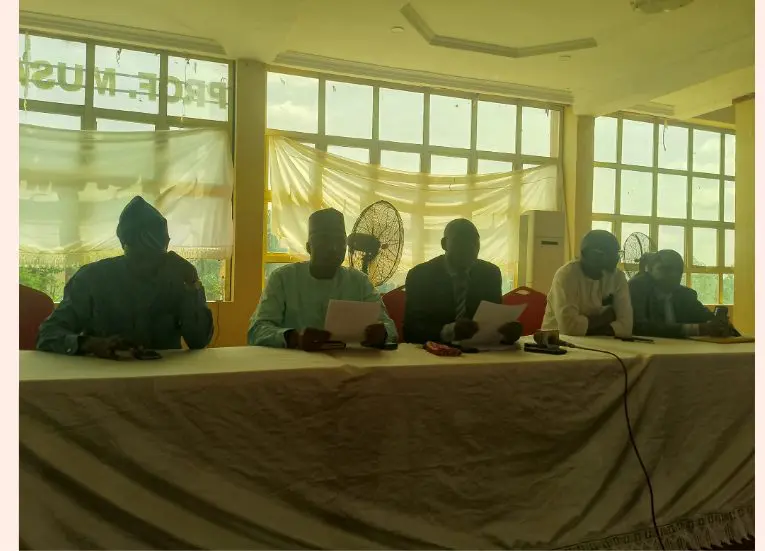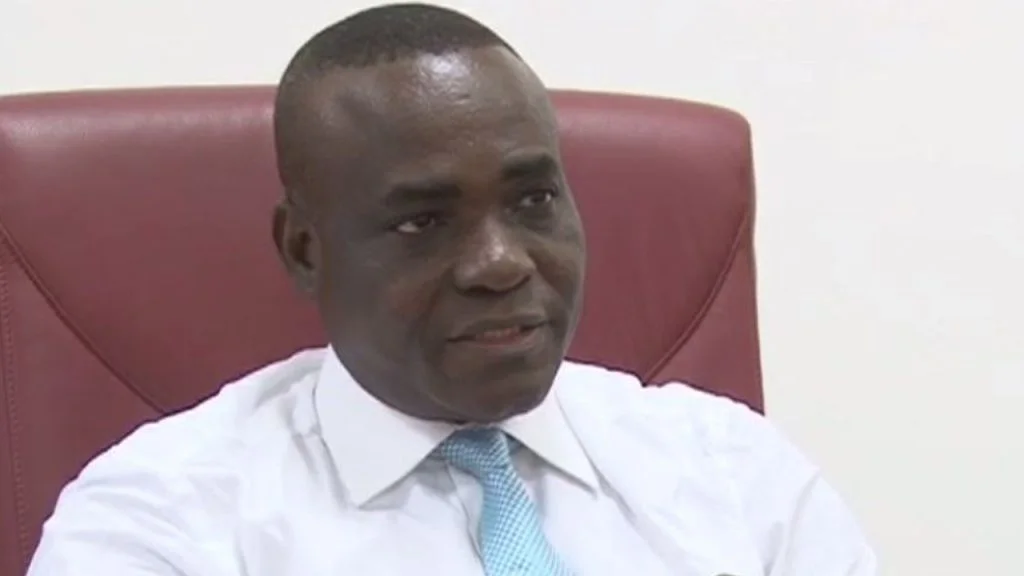News
UK, Nigeria Sign Landmark Partnership To Boost Trade, Investment

The United Kingdom (UK) has entered into an Enhanced Trade and Investment Partnership (ETIP) with Nigeria, aiming to enhance trade and investment between the two nations and create new opportunities for businesses in both territories.
The agreement, signed by UK Secretary of State Kemi Badenoch and Nigerian Trade Minister Doris Nkiruka Uzoka-Anite in Abuja, marks the first ETIP the UK has signed with an African country. It aims to build upon the already robust trading relationship between the UK and Nigeria, which amounted to £7 billion in the year leading up to September 2023.
The partnership will facilitate opportunities in key sectors such as finance, legal services, and the creative industry, fostering new collaborations and promoting economic growth. The signing coincides with a planned UK Government-led fashion and beauty trade delegation to Nigeria, scheduled for the following week.
UK Business and Trade Secretary Kemi Badenoch expressed enthusiasm about the partnership, highlighting Nigeria’s status as one of the world’s fastest-growing economies and emphasizing the potential for UK businesses to expand their presence in Nigeria.
Nigerian Minister for Trade, Doris Nkiruka Uzoka-Anite, emphasized the deepening economic ties between the two countries and the potential for shared economic prosperity through increased market access, business support, job creation, and mutual investment.
The ETIP aims to build on previous efforts to resolve market access barriers, particularly in education and finance, which have created a more favorable trading environment for businesses from both countries.
Additionally, the partnership presents an opportunity to attract UK and international investment, particularly from the City of London’s financial and professional services sector.
During the visit, Minister Badenoch will participate in a groundbreaking ceremony at Abuja’s first industrial park, supported by a UK-Turkish construction firm, Zeberced Ltd. The park aims to create hundreds of direct and indirect jobs and provide a hub for businesses accessing central and northern Nigeria.
Furthermore, Minister Badenoch will witness the signing of an energy agreement between UK-based energy firm Konexa and Nigerian power generation company North South Power, facilitating the supply of renewable power to Nigerian Breweries PLC and promoting sustainable development and clean energy adoption.
The ETIP also sets the stage for increased collaboration on the UK’s Developing Countries Trading Scheme (DCTS), offering simpler and more generous trading terms for Nigeria and 36 other African countries. This initiative will lead to tariff reductions on over 3000 products, promoting trade and supporting Nigeria’s broader trade policy objectives, particularly in non-oil export sectors.
News
Nigeria s 1999 Constitution full of flaws – Muslim lawyers association

The Muslim Lawyers Association of Nigeria, MULAN, has declared that there are many defects and flaws in the current 1999 Constitution of the Federal Republic of Nigeria.
MULAN National President, Dr Kazeem Olajide Olaniyan, made this declaration while addressing a press conference to herald the 15th annual general conference of the association on Thursday in Ibadan, the Oyo State capital.
Olaniyan stressed that Nigeria needs a homegrown Constitution that will address the current challenges facing the country.

According to him, the 1999 Constitution was drafted during the military rule and has many defects and flaws.
He noted that a homegrown will address the current problems the country is facing.
Olaniyan while speaking further, maintained that the theme of the conference, ‘National Development: The new dynamics and nuances’, was chosen so as to provide solutions to the country’s problems.
He also used the medium to appeal to the government to address the issue of fuel scarcity, food crisis and inflation in the country.
“Any Constitution Nigeria must have must be homegrown. What we have now was drafted by the military.
“There are so many defects and flaws in the 1999 constitution.
“Removal of subsidy of petroleum has effect on all of us coupled with inflation. We are now experiencing fuel scarcity.
“As we speak, if we are blaming the government, there are so many things we as people are also causing. We are also calling on the government to address the problem of food insecurity.”
News
Court adjourns trial in Nigerian Govt versus Ali Bello, others to May 27

Senator Ita Enang, former Special Adviser to the President on National Assembly Matters, attributed the failure of the Nigerian economy, the escalating debt burden, and the depreciation of the national currency, the naira, to the National Assembly. Enang made these remarks during the public unveiling of Oversight Magazine, a publication dedicated to covering parliamentary events, by former House of Representatives member Aniekan Umannah.
Enang asserted that the National Assembly’s inability to pose pertinent inquiries was accountable for the economic challenges. Having chaired both the House and Senate Committees on Rules and Business, Enang criticized the chambers for never releasing reports on their oversight duties as required, nor for questioning the nation’s debt.
He highlighted that while lawmakers frequently conduct oversight visits to scrutinize the activities of Ministries, Departments, and Agencies, they neglect to present their findings for deliberation on the parliamentary floor. According to him, the executive’s suboptimal performance, at both state and national levels, can be attributed to the deficient oversight of the National Assembly and state Houses of Assembly nationwide.
Enang emphasized the importance of the oversight function, stating that it allows for monitoring the utilization of budget allocations, assessing project progress, and planning future budgets accordingly. He concluded that the failure of the Nigerian economy, the devaluation of the naira, and the excessive debt accumulation are ultimately the responsibility of the National Assembly.
News
NASS responsible for failure of Nigeria’s economy, rising debt – Ita Enang

Senator Ita Enang, former Special Adviser to the President on National Assembly Matters, attributed the failure of the Nigerian economy, the escalating debt burden, and the depreciation of the national currency, the naira, to the National Assembly. Enang made these remarks during the public unveiling of Oversight Magazine, a publication dedicated to covering parliamentary events, by former House of Representatives member Aniekan Umannah.
Enang asserted that the National Assembly’s inability to pose pertinent inquiries was accountable for the economic challenges. Having chaired both the House and Senate Committees on Rules and Business, Enang criticized the chambers for never releasing reports on their oversight duties as required, nor for questioning the nation’s debt.
He highlighted that while lawmakers frequently conduct oversight visits to scrutinize the activities of Ministries, Departments, and Agencies, they neglect to present their findings for deliberation on the parliamentary floor. According to him, the executive’s suboptimal performance, at both state and national levels, can be attributed to the deficient oversight of the National Assembly and state Houses of Assembly nationwide.
Enang emphasized the importance of the oversight function, stating that it allows for monitoring the utilization of budget allocations, assessing project progress, and planning future budgets accordingly. He concluded that the failure of the Nigerian economy, the devaluation of the naira, and the excessive debt accumulation are ultimately the responsibility of the National Assembly.
-

 World News7 months ago
World News7 months agoWhat we know about Israel’s war with Hamas
-

 Sports7 months ago
Sports7 months agoLaLiga: Everyone want to play with him – Vinicius on player Real Madrid should sign
-

 World News7 months ago
World News7 months agoIran calls on Islamic, Arab countries to confront Israel
-

 Tech7 months ago
Tech7 months agoTop 10 AI Skills to Learn in 2023
-

 Entertainment7 months ago
Entertainment7 months agoBET Hip-Hop Awards: Black Sherif wins big as Burna Boy loses seven nominations
-

 Entertainment7 months ago
Entertainment7 months ago‘Black Panther’ star Lupita Nyong’o breaks up with boyfriend, Selema Masekela
-

 ICT8 months ago
ICT8 months agoApple Bows To EU, Unveils iPhone With USB-C Charger
-

 World News7 months ago
World News7 months agoZelensky seeks defences for winter on visit to NATO


